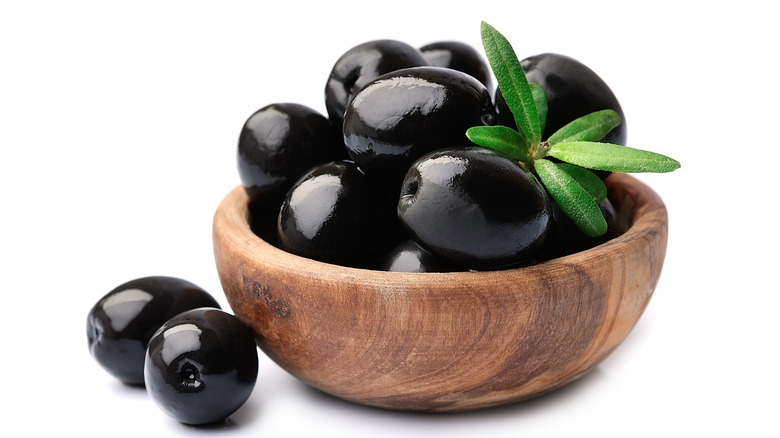What You Need To Know About The Nationwide Olive Recall
Originally only found in the Mediterranean, olives came to the Americas with the Spaniards in the 1500s. By the mid-1700s, olives had spread to the present-day United States. Today, about 56% of Americans enjoy eating olives, according to YouGovAmerica.
These little stone fruits are rich in antioxidants and vitamin E, as well as iron, copper, and calcium. Because of their nutritional makeup, Healthline notes that eating olives can help minimize risks for heart disease and some cancers.
Olives come in many varieties –- more than just 'green' and 'black' -– and are used in all sorts of ways. In addition to being used to make olive oil, olives top off martinis, salads, and pizzas. They pair nicely with cheeses, meats, and bread. All in all, olives are pretty amazing, but they still aren't immune to problems, including recalls. If you've got olives in your fridge right now, you might want to read this.
These olives contain more than just licorice flavoring
A&C Best Food Trading Inc. has voluntarily recalled its "licorice flavor olives" on March 23. According to the U.S. Food & Drug Administration's report, routine product sampling found "undeclared sulfites" in the company's olives. The affected products are in one-pound jars marked with "2021/10/15" and "588552-331090," and should be thrown away immediately.
Fortunately no cases of illness have yet been reported, but ingesting more than 10 mg of sulfites can prove extremely dangerous for individuals with respiratory conditions or other sensitivities. Reactions may include difficulties breathing, hives, and digestive problems, per WebMD.
How might these sulfites have gotten into the olives in the first place? It's not so out of the ordinary — sulfites are sometimes used as preservatives because they can prevent discoloration in food. Although the FDA banned the use of sulfites in "fresh vegetables and fruits" in 1986, according to The New York Times, they are still used as preservatives in other foods. The problem that led to these olives being recalled is not necessarily the sulfites, but that said sulfites were "undeclared," or not included on the ingredient list.

